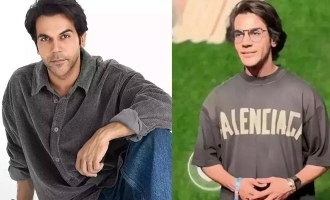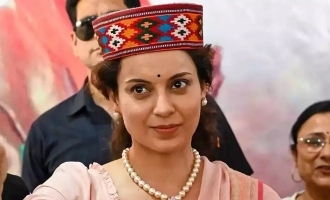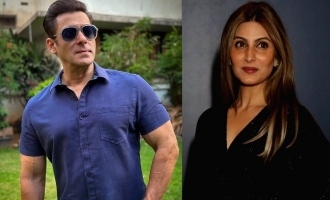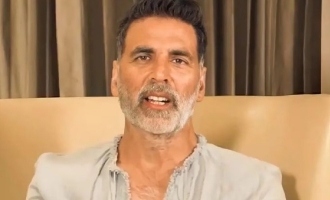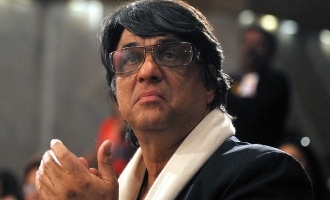New Bollywood Economics say art can meet mainstream


Send us your feedback to audioarticles@vaarta.com


Two cop movies by two art house directors in as many weeks, but one lesson - cerebral cinema can enter the mainstream without compromises.
"Dev", a cinematic masterpiece by "Ardh Satya" (1983) director Govind Nihalani, when contrasted with the previous cop film, "Aan: Men At Work" by "Chandini Bar" director Madhur Bhandarkar, illustrates that good cinema need not fall victim to clichéd formulas and can still be commercially viable.
Starring Bollywood's most happening stars like Amitabh Bachchan, Kareena Kapoor and Fardeen Khan, "Dev" gives full credit to the intellect of the common Indian moviegoers who have been patronizing movies for more than a century.
With this film about communal riots in Gujarat, a subject untouched by Bollywood, Govind has struck the delicate balance between cinema of conviction and box-office diktats that had eluded him in his last big release, "Thakshak" (1999), starring the Bollywood hero Ajay Devgan.
"Dev" has found widespread appreciation from critics and moviegoers for its sensitive and realistic take on the communalisation of India's polity and police force.
Amitabh, Om Puri, Kareena and Fardeen have raked in rave reviews for their performances.
On the other hand, Bhandarkar will have to live with allegation that he failed his art and his craft by making "Aan" into a run-of-the-mill action flick.
"'Aan' relied too heavily on action and gimmicks and less on substance. Stories like the one in 'Aan' have been witnessed time and again. For someone who has attempted daringly different stuff ("Chandni Bar', 'Satta', even underproduction 'Page 3'), one fails to understand what exactly did he see in the script of 'Aan,'" said trade analyst Taran Adarsh.
In this era of corporatisation and increasing willingness of new and old production houses to finance offbeat films, filmmakers can no longer put the blame for bad films on economics.
Gone are the days when a filmmaker of the stature of Shyam Benegal had to make corporate promotional documentaries to finance his films, said a trade observer.
A heartening story of conviction is of how director Rajat Kapoor went about raising money for his idiosyncratic little film "Raghu Romeo" that is slated for release June 18.
The film has received glowing reviews and has been to more than a dozen film festivals including Locarno and Stockholm. Though Kapoor was offered finance by big names in Bollywood if he agreed to change the film's cast, he stuck to his original choices -- Vijay Raaz of "Monsoon Wedding" fame and Saurabh Shukla.
To finance the story about an underprivileged man in love with a TV star, Kapoor went to government-run National Film Development Corporation of India and raised the rest of the money by sending out requests to common people via the Internet and through newspaper articles.
"The real crisis is of ideas. The Hindi film industry is plagued by sheer bankruptcy of good stories. Hollywood spends around $700 million in scripts alone," said maverick filmmaker Ram Gopal Varma, who has announced plans for a film on forest brigand Veerappan.
More films are made in India than anywhere else in the world. However, the success rate is a mere two percent.
Marketing guru Arindam Chaudhuri, who is entering Hindi cinema with a film that will star 10 newcomers and Sunny Deol, said a film too is a product, like soaps or cars.
Chaudhuri is confident his much-researched film "Rok Sako To Rok Lo" will revolutionize film production in India. Critics, however, are unimpressed as they say filmmaking is not just a function of economics but a labor of love.
A point in case can be "Girlfriend" starring Isha Koppiker, Ashish Chowdhary and Amrita Arora and directed by Karan Razdan, who also made "Hawas" that went on the marquees this week.
The film thrives on shock values and is anti-lesbian as it projects people with alternative sexual preferences as lunatics. The film, however, is a well thought out commercial venture and will make profits.
Follow us on Google News and stay updated with the latest!
More News
Headlines
Cinema News
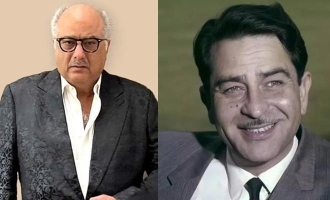 Boney Kapoor reveals raj kapoor lived in servant quarters
Boney Kapoor reveals raj kapoor lived in servant quarters
 Saira Banu weighs in the clash between mimtaz and zeenat aman
Saira Banu weighs in the clash between mimtaz and zeenat aman
 Mumtaz calls out Zeenat Aman's comments on live in relationship advice
Mumtaz calls out Zeenat Aman's comments on live in relationship advice
 Shah Rukh Khan wins hearts at at IPL match KKR
Shah Rukh Khan wins hearts at at IPL match KKR
 larence bishnoi suspected in salman khan house shooting
larence bishnoi suspected in salman khan house shooting
 Gunshots fired outside Salman Khan's residence in bandra
Gunshots fired outside Salman Khan's residence in bandra
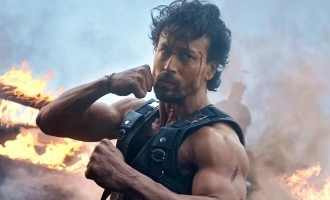 Tiger Shroff s Soaring Success A Spotlight on His Impact in Bade Miyan Chote Miyan
Tiger Shroff s Soaring Success A Spotlight on His Impact in Bade Miyan Chote Miyan
 Bigg boss winner and comedian Munawar Faruqui pelted by eggs in a visit to a sweet shop
Bigg boss winner and comedian Munawar Faruqui pelted by eggs in a visit to a sweet shop
 zeenat aman advises about relationship test love with live-in relationship before marriage
zeenat aman advises about relationship test love with live-in relationship before marriage
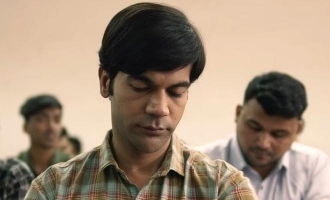 Rajkummar Rao shine in Srikanth bolla's biopic "Srikanth" trailer released
Rajkummar Rao shine in Srikanth bolla's biopic "Srikanth" trailer released




 Follow
Follow

